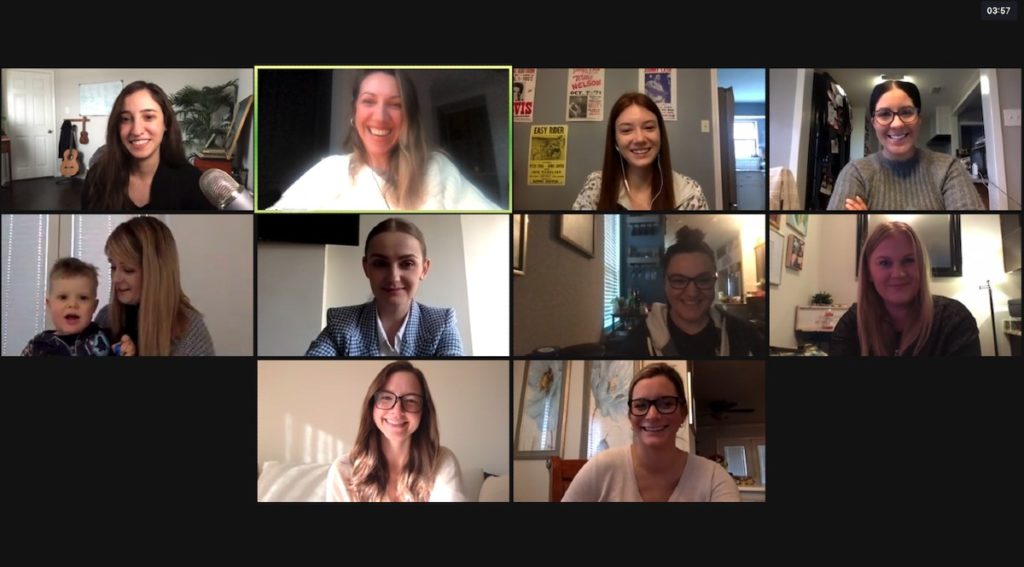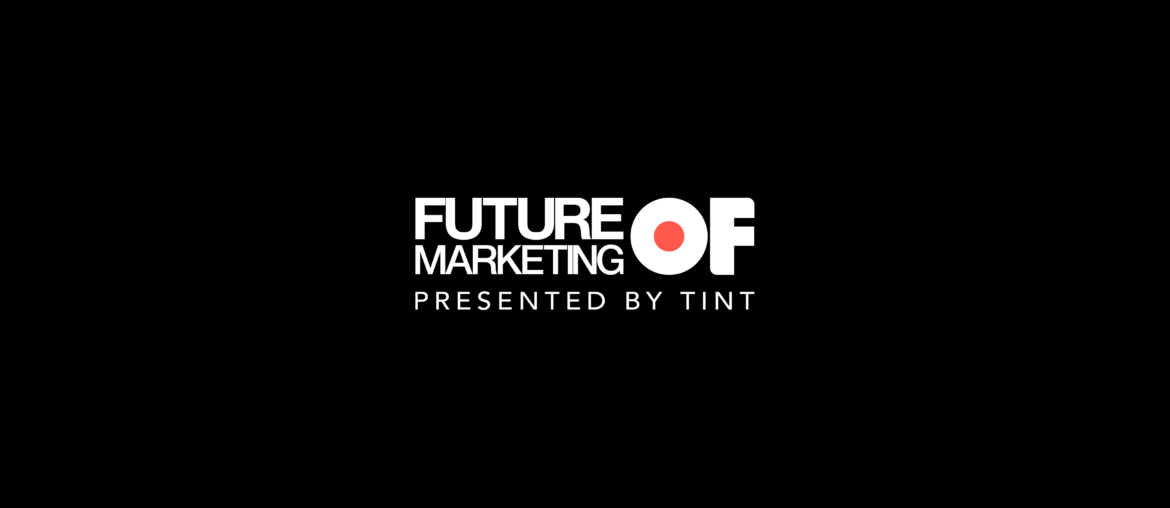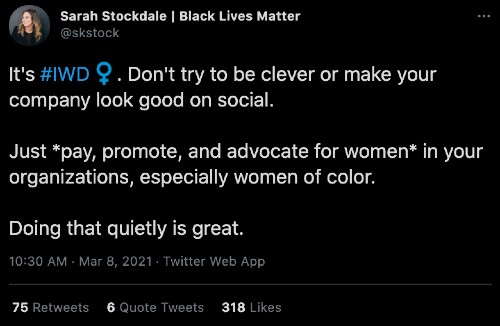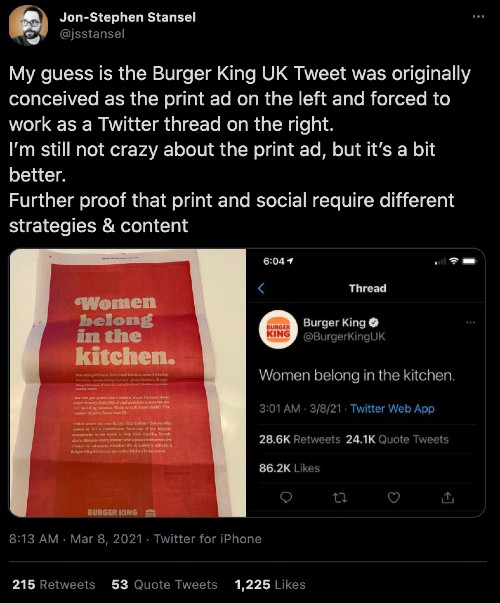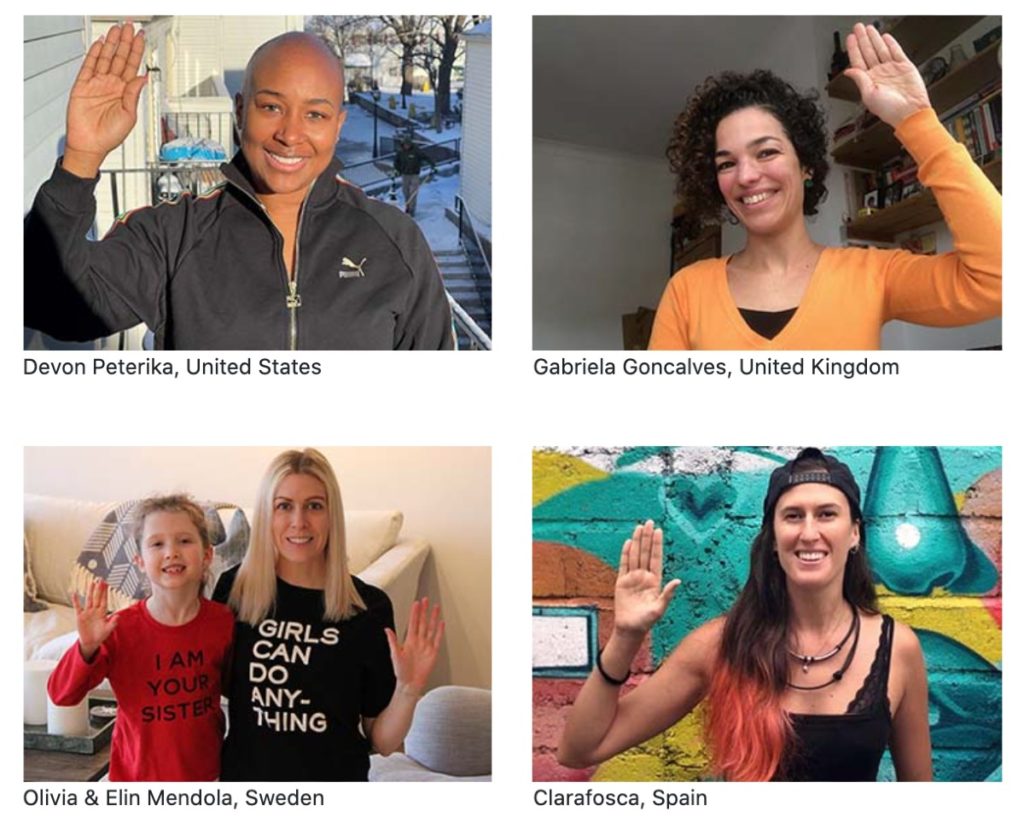Welcome to Future of Marketing.
Each week, we send you the most relevant trends, resources, and strategies in social and user-generated content (UGC) from leading marketers and brands around the globe.
Today’s we’re discussing…
- Ways to support women
- Shockvertising fail by Burger King U.K.
- Raising awareness with #ChooseToChallenge
Women in Power
In honor of International Women’s Day (and month), Oprah’s interview with Meghan Markle and (former) Prince Harry garnered over 17 million views. The interview took over social conversations and was a testament to women around the world who’ve been silenced, discriminated against, or overlooked.
If you look closely at the user-generated content (UGC) within #OprahMeghanHarry and better yet, #InternationalWomensDay – people suggest different ways society (and brands) can authentically support women.
Spoiler: brands can support by hiring more women, compensating them fairly, and promoting them to leadership positions. After all, research demonstrates that companies with women in leadership roles perform better… and why wouldn’t you want that?
The royal interview and International Women’s Day sparked UGC around important conversations, which presents opportunities for brands to practice social listening, be more inclusive, and solve important issues.
Burg(HER) Queen?
Burger King (BK) is known as the master of controversy – but that quickly changed when they tweeted a thread that led with the headline:
“Women belong in the kitchen.”
While the intention was to tap into shockvertising and grab attention – which it did – the UGC that poured in carried a level of negative sentiment that exceeded prioritizing likes and shares.
David Ogilvy once said, “80% of people only read the headline” – which means the rest of BK’s message got lost in translation.
In essence, BK attempted to repurpose the original print ad to social media, but the message failed to resonate with users (regardless of the intention). This only proves that inclusivity matters when making these decisions, and content needs to be thoughtfully redistributed across different platforms because audiences and consumption behaviors vary.
Burger King deleted the tweet and released a statement immediately after to apologize. They further clarified their intention was to bring awareness to their new scholarship program… but the damage was done.
Burger King will come back from this – but consider it a lesson to think before you share, and be more inclusive when making decisions. TINT’s State of UGC 2021 report states:
“Social media managers have a massive responsibility to build and maintain a brand’s reputation in real-time, across a number of rapidly-evolving platforms.”
As Sarah Dawley, Content Manager at Hootsuite, says: view your social media managers as a “trusted source of information and cultural intelligence.”
What we’re learning
- Influencers to focus on in 2021
- User-generated content for social media marketing: a starter’s guide
- 5 ways B2B companies can use Clubhouse
- Twitter looks to get in on the eCommerce boom with new shopping experiments
- Instagram adds auto-captioning to stories
- How brands are honoring IWD during a pandemic that’s been disproportionately harsh
#brandcrush: International Women’s Day 💘
Each week in #brandcrush, we highlight exceptional brands that are channeling their customers’ voice to connect more authentically with their audience.
International Women’s Day launched their campaign theme for 2021, #ChooseToChallenge, where they asked fans of all gender identities to raise their hand high to show their solidarity and commitment to call out inequality.
The non-profit asked users to tag and submit photos to the #ChooseToChallenge hashtag for a chance to be featured on their IWD website gallery and social media feeds.UGC goes beyond social listening and collecting feedback.
The #ChoosetoChallenge UGC campaign demonstrates that content can also raise awareness around important issues – and help make a difference.
Last but not least, here are some of the brilliant, fierce, and talented women on our team! Thank you for everything you do.
Happy International Women’s Month!
